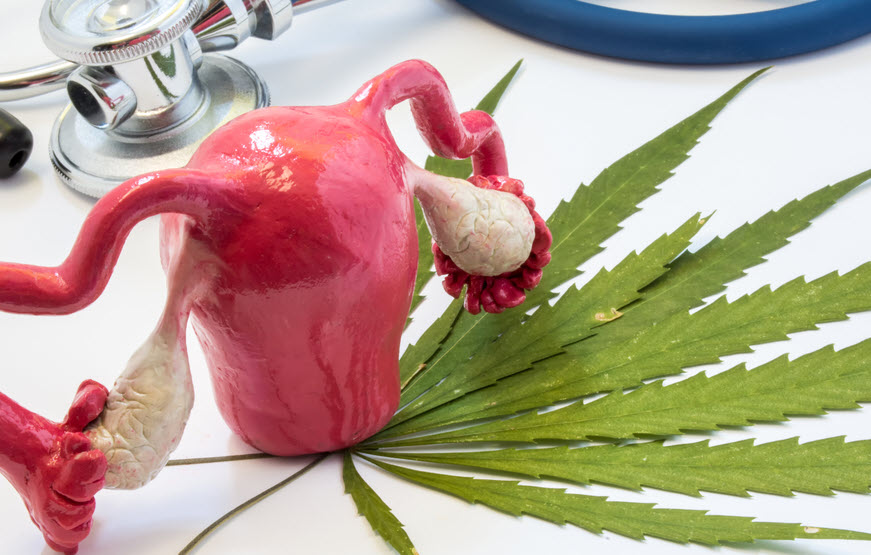
How does cannabis affect female fertility and ovulation?
The effects of cannabis use on female fertility and ovulation
Women of childbearing potential who use cannabis may be concerned about the effects of their habit.
After all, age—like everything we put into our bodies—can increase or decrease our chances of conceiving. However, age is the most important factor that determines a woman’s fertility; All females are born with a finite number of eggs, and the quality and quantity of these eggs decreases with age.
Other factors also include genetics, hormones, medical history and lifestyle. Women who are overweight or underweight, have irregular sleep patterns, consume alcohol, and smoke tobacco typically have a reduced chance of becoming pregnant, especially over the age of 35. But what about cannabis?
Finally, marijuana is the most widely used recreational drug, particularly among adults of childbearing age. In addition, cannabidiol (CBD) products are also widely used by women of all ages, especially to treat various diseases affecting the reproductive system.
Studies and surveys show how cannabis affects fertility
A 2018 survey of women in the United States and Canada was conducted by researchers at the Boston University School of Public Health. The findings, published in the Journal of Epidemiology and the Community Health Journal, were the first study to analyze any associations between the likelihood of conception and cannabis use.
Four thousand one hundred and ninety-four women aged 21 to 45 participated in the web-based Pregnancy Study Online (PRESTO). It focused on women who were in stable heterosexual relationships and were not using fertility treatment or contraception. The women also had the choice to invite their male partners to the survey.
The results showed that from 2013 to 2017, approximately 12% of female subjects and 14% of male subjects admitted to using marijuana 2 months prior to responding to the PRESTO survey. They participated in 12 cycles of follow-up, after which it was found that the odds of conceiving were similar in the heterosexual couples who used marijuana and those who didn’t.
“With the increasing number of states legalizing recreational marijuana across the country, we thought it was a good time to examine the link between marijuana use and fertility,” said Lauren Wise, lead author of the study and a professor of epidemiology at Boston University .
Other studies show that CBD can help women struggling with hormonal imbalances. Several hormonal abnormalities decrease the likelihood of ovulation and can interrupt it, making pregnancy unlikely or even impossible.
Hormonal imbalances can be difficult to treat. It often occurs in cysts and may require the use of surgery, lifestyle changes, and medications – often 2 or more treatments just to be successful.
However, one study has shown that consuming CBD can be beneficial in regulating the release of cortisol, a stress hormone. High levels of cortisol in the body can affect other hormones such as sex hormones and thyroid-stimulating hormones. Because of this, any method that is effective in reducing cortisol is beneficial in supporting overall hormonal balance. In addition, CBD is rich in omega fatty acids and gamma linolenic acid, which help to stabilize hormones.
Another 2017 study analyzed the impact of cannabinoids on endometriosis. “Pain management for patients with endometriosis needs to be more effective, targeting the hormonal and immunological environment, down-regulating proliferation while improving apoptosis, and normalizing invasive mechanisms and neuroangiogenesis processes. Modulating the ECS (endocannabinoid system) seems to be a good therapeutic strategy, possibly combining all these factors,” the study authors concluded.
Excessive estrogen production in a woman’s body can lead to numerous fertility problems. High estrogen levels are linked to ovarian cancer, endometriosis, insulin resistance, irregular periods, and difficulty conceiving. Estrogen is produced in the body, and other enzymes in the body also help control production and metabolize it.
Studies have found that CBD effectively inhibits the production of estrogen in cells by limiting an enzyme called aromatase, which produces it from testosterone. Aromatase inhibitors are used to reduce estrogen production in postmenopausal women and in women with breast cancer.
Another study showed that CBD helps the body metabolize estrogen by increasing cytochrome p450 enzymes, which help break it down.
These studies point to cannabidiol’s anti-estrogenic abilities, which are helpful for women struggling with hormone-related fertility, ovulation, and health issues.
Conclusion
The human endocannabinoid system helps maintain balance in many important biological processes. These include fertility, stress, mood and immunity, among others. The endocannabinoid system also influences the endocannabinoid system, which is why using CBD and cannabis products can help stabilize hormonal imbalances.
Although there are few studies analyzing the effects of cannabis products and female ovulation, the current results are promising. This is especially because women often have to resort to painful and invasive treatments to manage hormonal imbalances and problems that affect fertility and ovulation.
For women who want to research the use of CBD and cannabis to treat ovulation and fertility issues, make sure you do as much research on your own. It’s also advisable to speak to a fertility specialist or your gynecologist, preferably one who has prior experience with cannabis or CBD products. These come in a variety of shapes and products, some of which may be better suited to your specific needs than others.
WHAT ABOUT CANNABIS AND MEN’S FERTILITY, READ MORE…

HOW DOES CANNABIS IMPROVE MEN’S FERTILITY? READ THIS!

Post a comment: